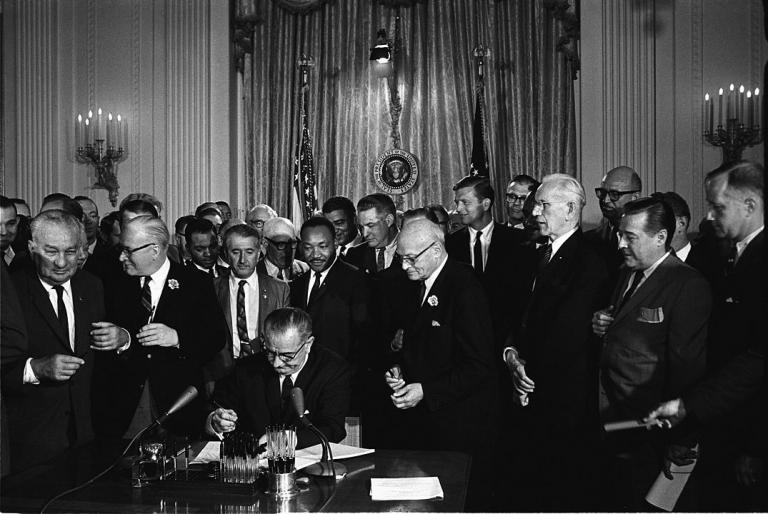Some corporations are requiring all employees to sign “equality pledges,” affirming their agreement with the LGBT agenda. But this violates Title VII of the Civil Rights Act, which prohibits workplace discrimination on the grounds of religious belief, just as it prohibits other kinds of discrimination.
Title VII is a powerful safeguard of religious liberty. So says David French, who, though known for his association with a controversy among conservatives, is an attorney who has successfully litigated many such cases.
He explains how it works in his article for National Review. From There’s a Legal Cure for Woke Corporations’ Religious Discrimination:
The weapon of choice here is Title VII of the Civil Rights Act of 1964, the federal law that prohibits workplace discrimination on the basis of “race, color, religion, sex, or national origin.” Under the statute, “religion” is defined to include “all aspects of religious observance and practice, as well as belief.”
I thought of Title VII today while reading a post from Rod Dreher that describes the increasing prevalence of corporate “equality pledges,” some of which ask employees to affirm that “lesbian, gay, bisexual, and transgender identities are within the spectrum of normal human experience and are not . . . sinful.” . . .
While an employer can certainly ask a doctor to treat all patients on an equal basis, it may not require an employee to sign an affirmation that explicitly seeks to contradict basic Christian theology, and it may not punish an employee who refuses to sign. . . .
It’s worth noting the sheer bigotry behind these workplace reprisals. They simply presume that because a person holds traditional religious beliefs that they can’t treat LGBT employees with dignity or respect, in spite of the existence of a host of other traditional religious beliefs that mandate kindness and love.
I recall a job interview many years ago at Cornell Law School. The interviewer correctly intuited from my CV that I was a religious conservative. How, she asked, could I teach gay and lesbian students?
The question was unlawful: Inquiring about religious beliefs at a job interview is a textbook Title VII violation. But rather than assert my legal rights, I sensed that the question was asked in good faith, so I answered, “My Christianity teaches me that every person is created in the image of God and should be treated with dignity and respect. I’ll treat all my students well, but I can’t guarantee that they’ll treat me well when they find out about my faith.”
She accepted my answer, I got the job, and we later became friends, but I couldn’t help but wonder: How many CVs are tossed aside because an obviously Christian candidate is presumed to be a bigot? Every year I talk to anxious young Christian lawyers and professionals who seek guidance on which items to include on their resumés and which to omit.
Yes, there are some Christians who behave in bigoted ways, but an employer cannot simply presume that a Christian will engage in workplace discrimination based on the existence of Christian beliefs.
Moreover, if employees are so triggered by Christianity that they cannot abide a Christian colleague, then they are bigots, not the Christian. Their actions are akin to those who can’t abide working alongside a woman or person of a different race.
French cites cases–such as the firefighter who lost his job for writing a Bible study that called homosexuality a sin–in which Title VII prevailed.
Christians today can stand on their legal rights, just as St. Paul stood on his legal rights as a Roman citizen (Acts 16, Acts 22).
Of course, hardly anyone wants to go to the time, expense, and trauma of actually going to court. But Corporations and HR departments–as well as individual employees–need to be educated about Title VII law.
Photo: Signing of the 1964 Civil Rights Law by Cecil Stoughton, White House Press Office (WHPO) – http://photolab.lbjlib.utexas.edu/detail.asp?id=18031, Public Domain, https://commons.wikimedia.org/w/index.php?curid=1395374












